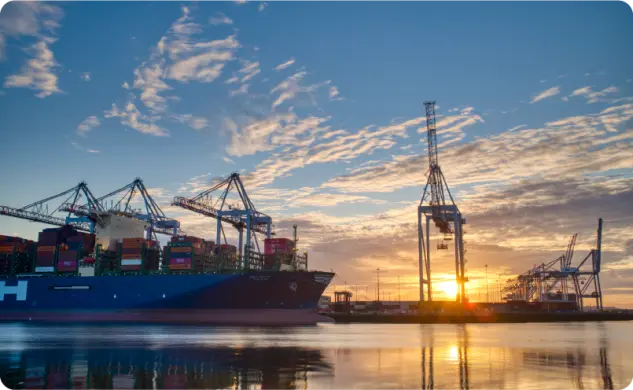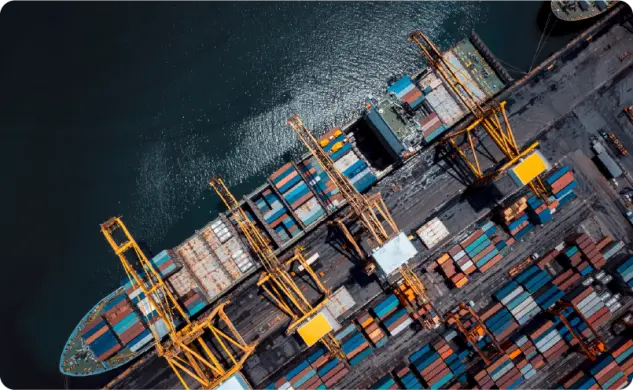- Iris Groenendijk
- Customs & Trade Assistant
- i.groenendijk@gaston-schul.com
- Follow on Linkedin
Opinion: Effects of new American import tariffs – A critical look at the recent CPB study.
- Tue, December 17, 2024
- 2.5 Minuten Lesezeit
Last month, the Netherlands Bureau for Economic Policy Analysis (CPB) published a research report on the potential impact of new American import tariffs on the Dutch and European economy. While the research conclusions were largely positive, with the CPB expecting only limited effects, we should remain cautious given the many assumptions underlying this analysis. This means we must continue preparing for Trump's new tariff era.

Authored by: Iris Groenendijk
CPB study results: Minimal impact on EU trade
The CPB concludes that the expected American import tariffs of 10% will only result in a 1% decrease for Dutch trade. For the European Union, the consequences will be about the same. Even if the EU introduces a counter tariff of 10%, there would be no major negative effects. A small sidenote is the fact that the possible impact of the tariffs on the Gross Domestic Product (GDP) has not been calculated.
The positive news does not end there. According to the research the European production patterns will shift and as a result we may trade even more with other parts of the world. The European service sector will also benefit, because of an improved competitive position. The prediction for the United States, however, looks a lot gloomier in this study. The expectation is that both the country's imports and exports will decrease by 20%.
A complex web: Why global trade defies simple forecasts
It's noteworthy that the CPB presents these results with such certainty despite relying on major assumptions. The research portrays trade as a relatively simple process, using less than thirty pages to forecast developments in the coming years. This oversimplifies the complexity of global trade and the many factors that influence it. Consider, for instance, Trump's announced tariffs on countries like China and Mexico.
This will undoubtedly change the flow of goods and have an impact on the EU. So, it is not about two simple flows of goods across the Atlantic Ocean, but about a complicated international trade web. The German Kiel Institute for the World Economy (IfW Kiel) calculated that world trade will fall by around 2.5% in the first year and that this could increase to 4%. These are percentages that we cannot simply ignore.
Legal risks of concealing goods' origins
The CPB mentions the possibility of transshipment and transit to conceal the origin of goods, to avoid tariffs. However, changing the origin of a good is easier said than done. Very strict rules must be followed regarding the origin of goods. If these rules are applied incorrectly, it can result in legal risks and noncompliance with applicable legislation.
Free trade vs. protectionism
At times, the CPB appears to defend protectionist trade policies like Trump's, highlighting potential benefits such as a stronger competitive position for the Dutch economy and increased domestic production. However, we should remember that most economists agree that free trade best serves the global economy. There's a reason protectionism peaked in the 19th century – we shouldn't regress to economic policies from two centuries ago.
The risks of trade tensions
The report briefly addresses the risk of a trade war, but dismisses it by assuming any conflict will remain limited and orderly. This raises a crucial question: what distinguishes a trade conflict from an all-out trade war?
Europe’s industry is still recovering from an energy crisis and our continent has a trade surplus with the US. Although this does not apply to the Netherlands, we are of course strongly connected as an economic and monetary union. We should look at the bigger picture and take headlines such as: ‘’US import tariffs hardly affect the Netherlands,’’ with a grain of salt.
Read more about this topic in our related article: Preparing for Trump's new tariff era.
More about the author
Verwandte Nachrichten und Artikel
Erhalten Sie unsere Expertenmeinungen und Zollinformationen direkt in Ihren Posteingang
Mit Ihrer Anmeldung erklären Sie sich damit einverstanden, dass Gaston Schul Sie über unsere relevanten Inhalte, Produkte und Veranstaltungen informiert. Sie können sich jederzeit abmelden. Weitere Informationen finden Sie in unserer Datenschutzrichtlinie.




